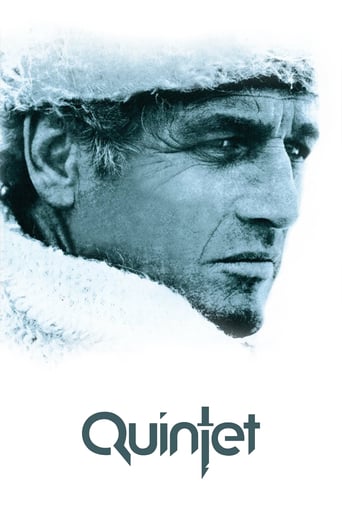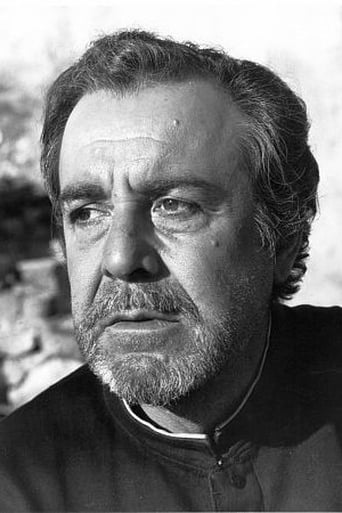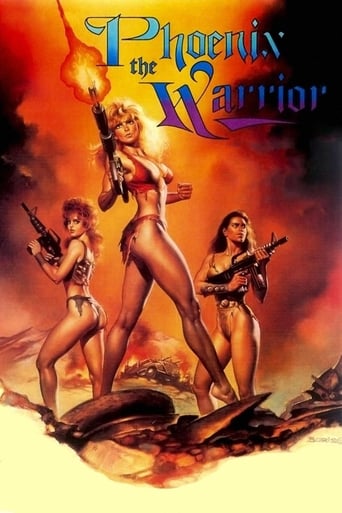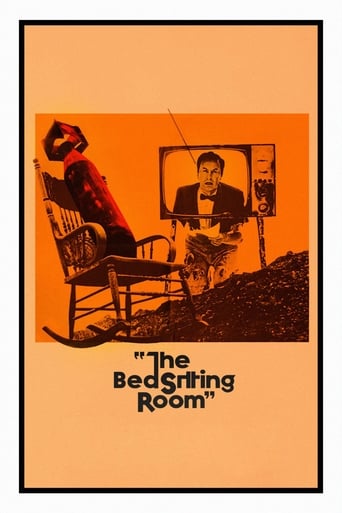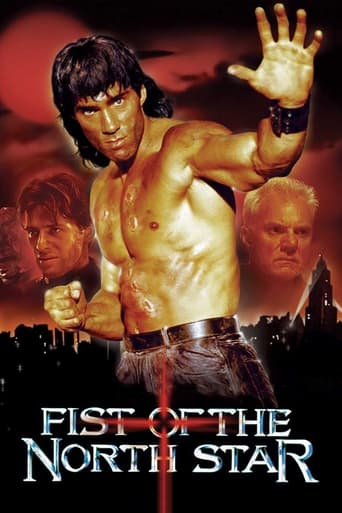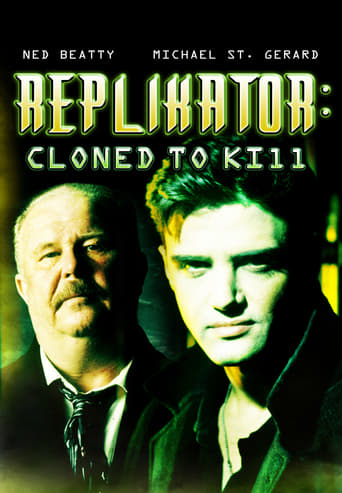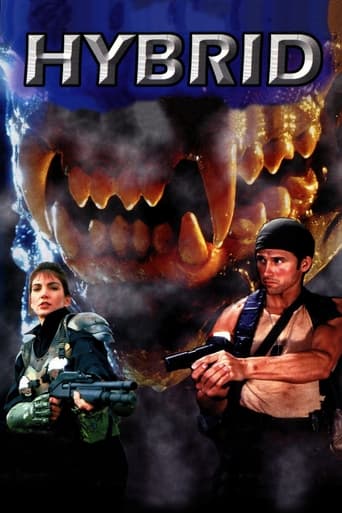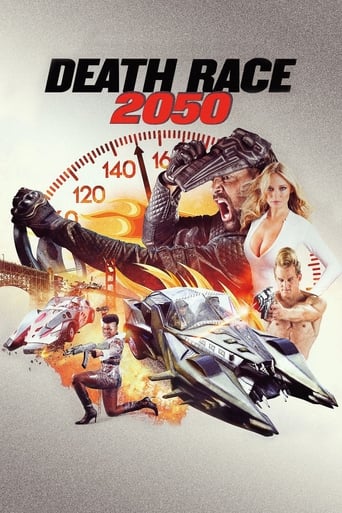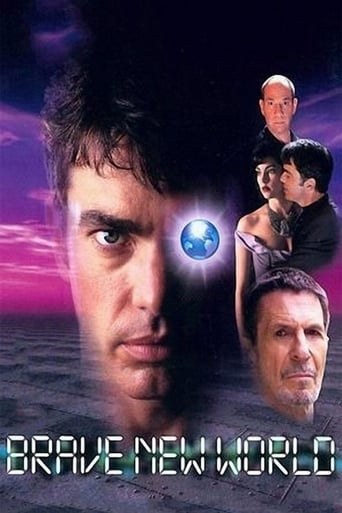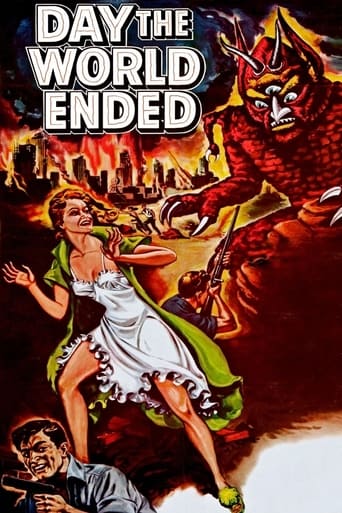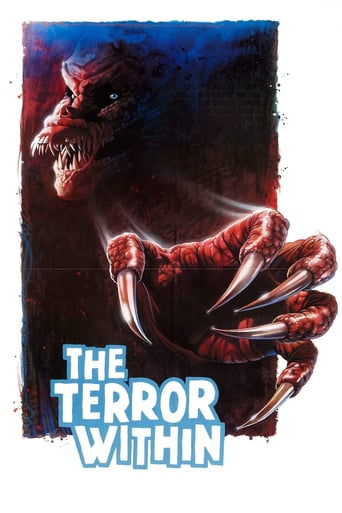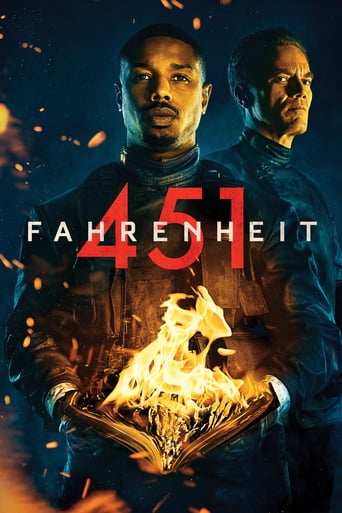Quintet (1979)
During a future ice age, dying humanity occupies its remaining time by playing a board game called Quintet. For one small group, this obsession is not enough. They play the game with living pieces, and only the winner survives.
Watch Trailer
Cast


Similar titles
Reviews
Fantastic!
A brilliant film that helped define a genre
The first must-see film of the year.
The film's masterful storytelling did its job. The message was clear. No need to overdo.
I have a list of about 10 of these older sci-fi movies of which I have seen 2 or 3, A Boy and His Dog and The City of Lost Children that I want to watch in the next week or so. I can't believe Paul Newman could stoop so low as to involve himself in this drek. He needed money? This is a movie that should never have been made (how embarrassing for Paul) and more importantly, should not be watched.
I usually do not comment on a film that I have not seen fully. But here I must. I only saw about 10 minutes of this thing, when Paul Newman checked into the "Hotel" met the guy with the funny man, with the hat with stars on it, and they walked over to a gambling table. That's when I checked out. Current rating for this pile of crap is 5.2. Some giving it a 10.Here's a few of the problems: 1) The edges of the screen were foggy, like in a dream, trying to make it look atmospheric or in a frozen lens – pure crap. 2) "Music" – sound effect – pure crap. 3) Acting – trash. 4) The costumes – what's the deal with the funky hat's? – It looked like they hollowed out some pillows and stuffed it onto actors heads. What's the deal with the guy with the Italian accent. This is supposed to be the future. Maybe someone in the writing team would think that at some point an old fashioned accent like that would have disappeared. So, what I saw was a sample of the movie, 10 minutes. Where I saw the video and heard the audio – what else is there? It was trash. I read through the other reviews. Check it out yourself. All I can say is this thing is a joke. If Paul was alive, I'm sure some dirt-bag at some party would wisecrack about this pile of garbage to him, and get his butt kicked by Paul's bodyguards.
In a post-apocalyptic future, in which the Earth is blanketed by snow, two travellers journey to a distant city. Once there, they discover the last remnants of humanity living a primitive existence within the battered remains of what was once a thriving plaza.After a bomb kills one of the travellers, the survivor, a seal hunter played by Paul Newman, is sucked into playing a local board game called Quintet. As the film progresses, the sinister rules of the game are slowly revealed.Shaped like a pentagon, it becomes apparent that the Quintet game board resembles the layout of the film's ruined city. Similarly, when a player is "killed" on the game board, those who did the "killing" must literally assassinate the opposing player in real life. Presiding over this deadly game is a referee who strongly resembles the film's director, Robert Altman. He exists "out of the game world" and is treated as a God/Satan figure, playing devilish games of life and death with the poor humans. Furthermore, the film links the "five sides" of its city/game to what one character calls the "five stages of life". These stages are "primum" (the pain of birth), "secundum" (the labour of maturing), "tertium" (the guilt of living), "quartum" (the terror of ageing) and "quintum" (the finality of death).Altman thus takes this simple board game and uses it as a metaphor for the hopeless lives of Earth's few remaining survivors. This is an existential tale of humans coping with the imminence of death, our seal hunter hero surviving only because he plays by his own rules.On another level, the film seems to set up numerous Biblical and religious allusions, only to purposeful knock them back down. There are references to the birth of Christ, Joseph and Mary, Satan, Jesus, God, The Passover, St Christopher, white "doves", rituals etc, which Altman playfully introduces then promptly undermines. Altman loves to deconstruct myths, whether he does so here I'm not quite sure.6/10 – An inferior rip off of Bergman and Tarkovsky's "Stalker", much of this film simply consists of people huddled around a game board or walking in the snow. Chop 40 minutes from the film and you'd have a pretty decent flick, but as it is, there's not enough material or depth here to warrant a 2 hour running time. Worth one viewing.
Bookended by figures emerging and dissolving into a frozen wasteland and taking place in a bleak, hopeless near future where society presumably collapsed under the weight of some nameless disaster that left a world covered in ice and a number of survivors trying to survive on it, you'd be forgiven for thinking that Quintet is some kind of dystopian post-apocalyptic sci-fi thriller. Not only it's not that but it's not really a fully fledged movie as much as a feature length essay on the basic philosophic idea that life can only be fully appreciated under the shadow of death, with a plot deliberately shaped as a chess game and dialogues often as wooden and posturized as something taken out of a Samuel Beckett play.I don't know what came first, the script or the location the movie was shot, a jambled mess of art installations forming the Man and His World Pavilion on St. Helen's Island, Montreal, originally built for the Expo 67 and left standing for years after. The first half hour can be a jarring experience, asking the viewer not only to abandon all familiar semiotics and landmarks one uses to navigate through a filmic universe much like real life and accept in their stead a convoluted world seen through an annoyingly soft focused lens (no doubt slapped with vaseline on the edges of the frame) where booze for some reason is called booza, people wear old Venezian hats and use a needlessly complicated information center made of revolving glass leaves, but to consider this cardboard version of the future within some realistic context. Which is nearly impossible given the absurdity of the plot and appears as an afterthought to give some additional credibility and dimension to what Altman is really going for. His little essay.The hopeless denizens of this bleak future spend their time playing a game called Quintet. Only the more foolhardy among them seem to have taken the game on the next level by organizing little tournaments of Quintet in real life. Paul Newman finds himself involved in one of them after his brother and pregnant girl are blown to bits by one of the participants. He then sleepwalks his way through two hours of cat-and-mouse absurdity peppered with philosophical rhetorics to finally receive a halfhearted explanation by the Judge of the game (an amicable fellow speaking in a heavy Italian accent played by Ferdinando Rey). An explanation which is ultimately weakened because the Judge had already revealed it 30 minutes ago - in his little talk about the point of the game, which is all that really matters here. No character is developed more than a pawn in a boarding game, not even Newman the protagonist, curiously wooden and uninterested in what's going on around him, although Ferdinando Rey seems to be enjoying the hell out of his role.Once you get past the slow start the film develops into a peculiarly riveting murder mystery but it never quite makes the cut as something genuinely inspired. Some of the ideas and themes explored are truly interesting, as for example the notion that it's the markers one carries that determine his identity, something he acquires or even steals (as does Newman who pretends to be Redstone by using his markers in order to take part in the Quintet game and discover who killed his brother) instead of being born with it, the five stages in life attended on all sides by the nothingness of death as explained by St. Christopher to his disciples, or perhaps even more so the idea of a judge tired of judging, wishfully ruminating how he would like for once to take part in the game instead of watch it unfold, perhaps follow the rules instead of interpret them.Obviously Quintet is not among Altman's best and if you'll get anything out of it or not largely depends on what level you're willing to engage it. As a dramatic work, it's undoubtedly a failure. On a dialectical level, as an essay of mostly philosophical nature, it's not bad at all.

